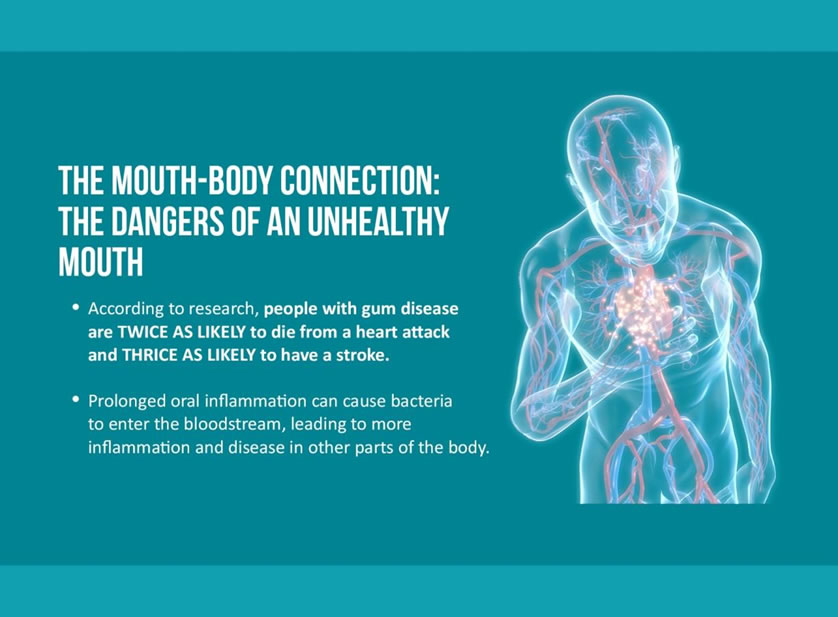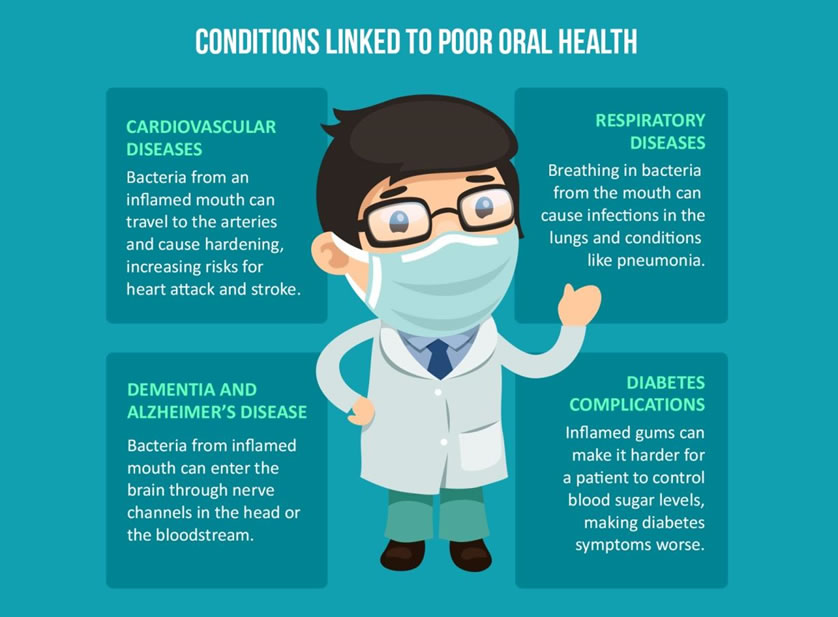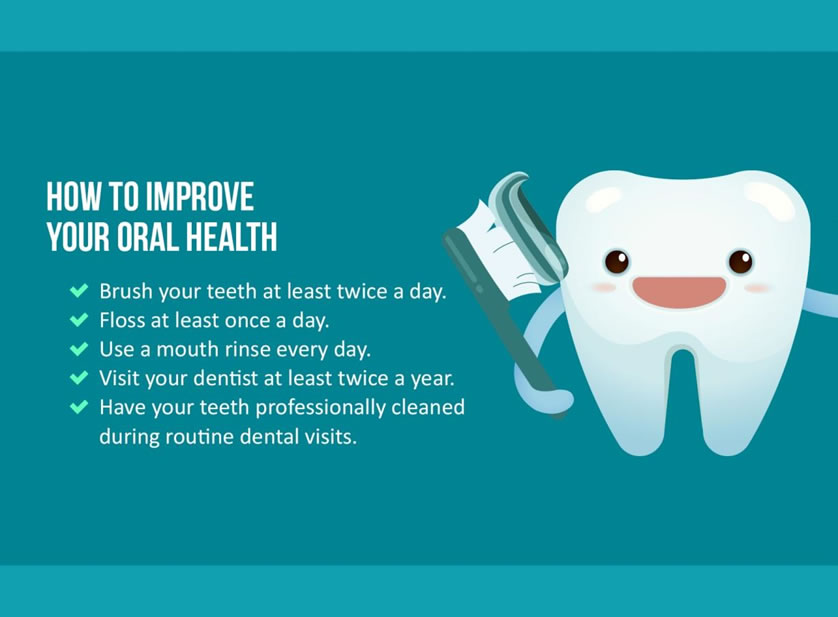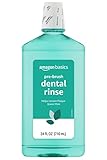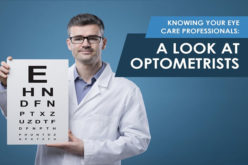You may have heard it over and over again that dental and oral care are important but you may not have been told how brushing (or not brushing) everyday can have an impact on the other aspects of your health. In this post, you’ll learn just that.
Your Mouth: A Window to Your Health
It may come as a surprise to many that your oral health can actually give clues about your overall health. For instance, systemic diseases, which are conditions that affect the entire body, commonly manifest themselves through mouth lesions and other similar or related oral problems. Your mouth can also show signs of nutritional deficiencies and general infection.
Furthermore, oral and dental issues can also lead to other problems, affecting the rest of your body. Mouth bacteria are generally harmless when kept under control. However, with bad oral hygiene, they can go haywire, causing inflammations, infections, and diseases beyond your mouth.
The Mouth-Body Connection: The Dangers of an Unhealthy Mouth
According to research, those with gum diseases are twice as likely to die from a heart attack and thrice as likely to suffer a stroke. Furthermore, prolonged oral inflammation can cause bacteria to enter the bloodstream, taking bacteria to different parts of the body and causing various diseases.
Conditions Linked to Poor Oral Health
Good oral health is important but why exactly? More than just giving you a big, pearly smile, practicing great dental hygiene can help you avoid conditions like:
- Cardiovascular Diseases:
Bacteria from gum inflammation and periodontal diseases can travel to the arteries through the bloodstream. This can cause atherosclerosis or hardening of the arteries. In this condition, plaque develops on the inner walls of the arteries, thickening them and limiting or blocking blood flow throughout the body, which can result in an increased risk of stroke and heart attacks. - Respiratory Diseases:.
The Journal of Periodontology states that gum diseases can lead to lung infections such as pneumonia. You may wonder how at first, but if you think about it, you cannot control breathing in bacteria from infected gums and teeth, especially when you leave them unattended for a long period of time. - Dementia and Alzheimer’s Disease:
You might think it unlikely but it’s not impossible for bacteria from gum disease or an infection to enter the brain through the bloodstream or nerve channels in the head. The bacteria can affect some functions of the brain, causing conditions like dementia and Alzheimer’s disease. - Diabetes Complications:
The development of periodontal diseases and gum inflammation can worsen diabetes symptoms and make controlling blood sugar levels more difficult. Furthermore, diabetes patients are more prone to oral diseases, making proper dental hygiene all the more important.
Aside from the conditions listed above, poor dental care can also play a role in immune system disorders, bone weakness, and complications in pregnancy such as low birth weight.
How to Improve Your Oral Health
Having neglected your oral health may have serious complications but don’t think that you can’t turn things around. Oral health can be improved and you can start with the following measures:
- Brush your teeth at least twice a day, or better yet, after every meal. Replace your toothbrush every three or four months too or when it starts to show wear and tear. You’ll more effectively clean your teeth when your toothbrush is in good condition.
- Floss your teeth at least once a day. You can also use other interdental cleaner, but make sure to ask your dentist for recommendations.
- Gargle with a dentist-approved mouth rinse every day. Gargling can reach places that your toothbrush can’t, helping ensure that your mouth is indeed thoroughly cleaned.
- Visit your dentist at least twice a year for a routine checkup. The sooner oral health problems are detected, the sooner they can be addressed and kept from affecting your overall well-being.
- Have your teeth professionally cleaned during your routine dental visits. This will make your trip to the dentist more fruitful as you’ll get more things accomplished with just one visit.
- Don’t forget to be mindful of what you’re eating as certain food items contribute specifically to promoting oral health, like calcium-rich food and polyphenol-containing cranberries that keep plaque from sticking to the teeth. Whatever you eat, however, always make sure that you brush afterward to remove food particles that can stick to your teeth and promote the growth of bacteria.
At the end of it all, the message is resounding: practicing proper dental and oral care is important in so many ways. To get your oral health up, make sure to work with a reputable dental professional in your area.
| google+ |
- One 24-fluid ounce bottle of pre-brush mouth rinse
- Use before brushing to help loosen plaque
- Helps remove more plaque from your teeth than brushing alone
- 1. UNIQUE ORAL CARE: Oral-B special care rinse is crafted to meet your unique oral care needs, including hydrogen peroxide mouthwash.
- 2. DENTIST FORMULATED: Specially formulated for Mouth Sores, including: Canker Sores, Cheek Bites, Braces & Denture Irritations, Oral & Gum...
- 3. CLEANSING ACTION: Cleanses oral wounds.
- DOUBLE MEDICATED: First and only double medicated toothache rinse for the temporary relief of pain due to toothaches and minor irritation of the mouth...
- ALL OVER ORAL PAIN RELIEF: Orajel Toothache Rinse contains an oral pain reliever to help to provide you with all over oral pain relief.
- SOOTHES CLEAN GUMS: Specially formulated to help soothe and clean your irritated gums and helps to kill odor causing bacteria in your mouth.
Last update on 2025-09-22 / Affiliate links / Images from Amazon Product Advertising API
end of post idea for home improvement
view and analyze home improvement ideas at our LetsRenovate center
Helpful article? Leave us a quick comment below.
And please give this article a rating and/or share it within your social networks.




